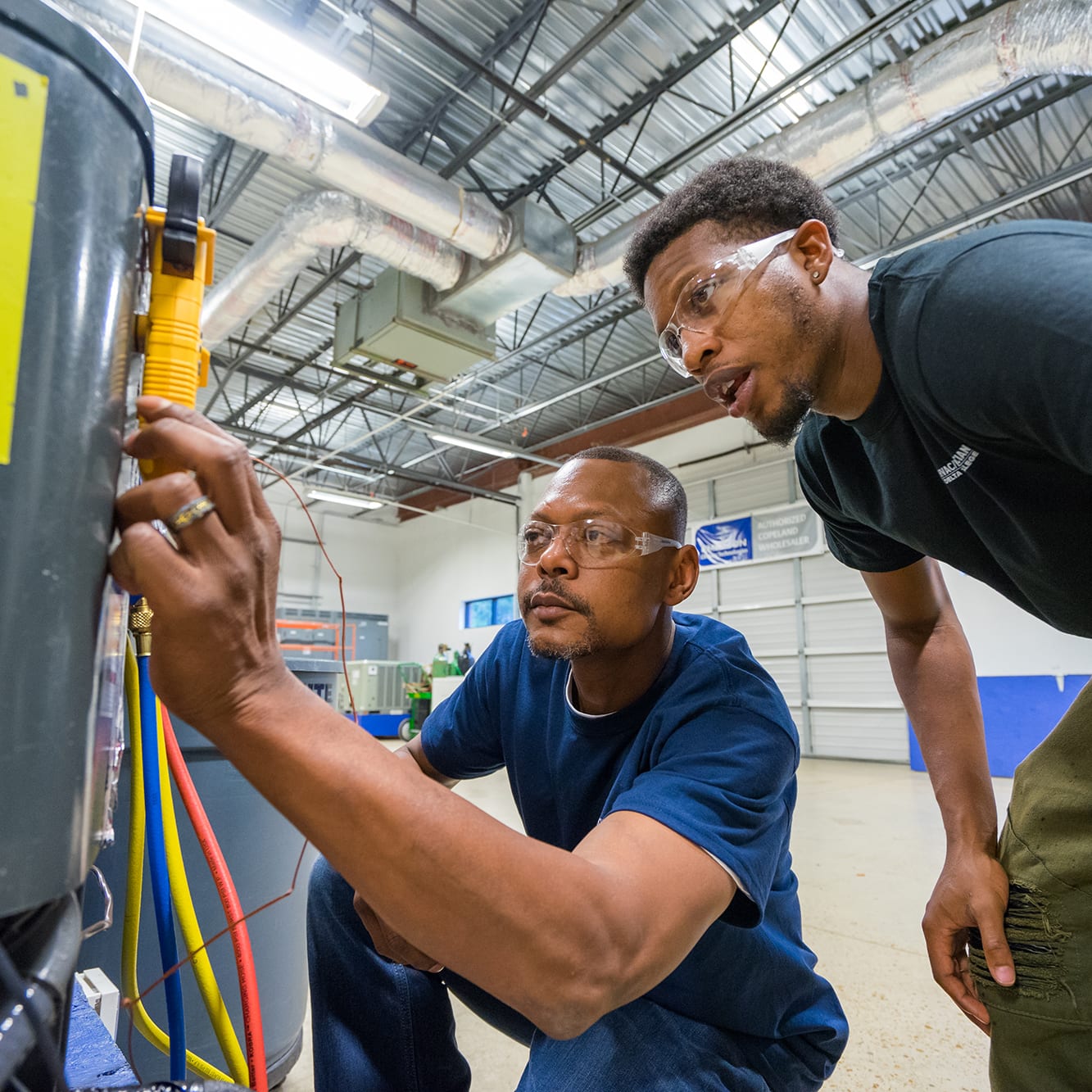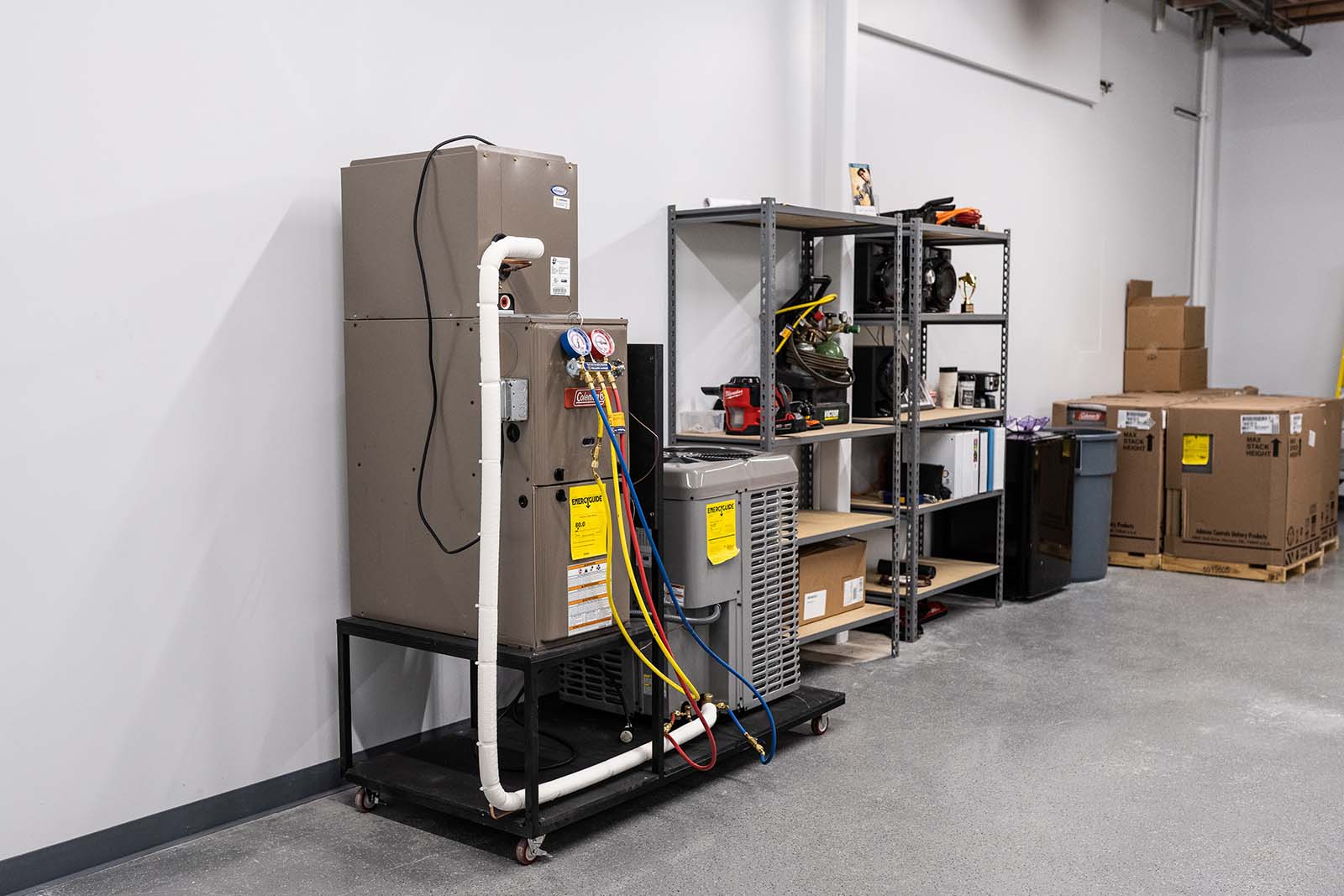Commercial HVAC Repair to Keep Your Organization Running Smoothly
Commercial HVAC Repair to Keep Your Organization Running Smoothly
Blog Article
A Comprehensive Take A Look At Heating And Cooling Providers and Their Influence on Power Effectiveness and Cost Financial Savings
The duty of cooling and heating services in improving power effectiveness and attaining price financial savings is a lot more important than ever before, as companies and homeowners look for lasting remedies in a significantly eco-conscious world. With technical innovations like wise thermostats and high-efficiency parts, the potential for optimizing system performance is substantial. Yet, the true effect of these advancements depends mainly on regular maintenance and positive issue administration. As we discover the complex connection between cooling and heating systems and functional prices, including the change towards ecologically friendly choices, the inquiry develops: exactly how can these methods be successfully implemented to optimize both environmental and financial benefits?

Relevance of Cooling And Heating Systems
HVAC systems are a crucial component of modern-day buildings, playing an important duty in maintaining comfortable and healthy and balanced indoor environments. These systems, incorporating heating, air, and air flow conditioning, are important for controling temperature level, moisture, and air high quality, thereby guaranteeing the wellness of occupants. Effective cooling and heating systems add considerably to creating an optimum interior environment, which is crucial for both property and industrial areas.
In business buildings, HVAC systems are integral to providing a efficient and risk-free atmosphere. By managing indoor climate problems, these systems aid prevent the development of mold and mildew and the spread of air-borne contaminants, thus guarding the health of employees and consumers. In addition, in household setups, a/c systems improve living problems by offering consistent thermal convenience and improving indoor air quality, which is vital for general health.
In addition, the style and upkeep of heating and cooling systems have a direct effect on energy usage and functional prices. Properly made and preserved systems can dramatically minimize energy usage, resulting in decreased energy expenses and a smaller carbon impact. The effectiveness of these systems therefore plays a vital duty in promoting sustainability and energy preservation within buildings, highlighting their relevance in the modern architectural landscape.
Breakthroughs in Cooling And Heating Technology
Technology in heating and cooling modern technology is revolutionizing the method buildings take care of indoor climates, ushering in a new age of efficiency and control. Current developments have concentrated on enhancing power intake while enhancing customer convenience. One significant development is the assimilation of wise thermostats, which make use of expert system to discover tenancy patterns and adjust temperatures accordingly, minimizing unneeded energy usage.
Variable Cooling Agent Circulation (VRF) systems represent an additional considerable leap onward. These systems enable exact temperature level control in different areas of a building, boosting convenience and minimizing energy waste. VRF technology is particularly helpful for large commercial rooms, providing flexibility and scalability.
Additionally, the development of Net of Points (IoT) tools has actually transformed cooling and heating systems into interconnected networks with the ability of real-time data collection and analysis. This connectivity makes it possible for anticipating maintenance, making certain systems run at peak efficiency and reducing unexpected downtime.
Moreover, improvements in materials and design, such as the usage of high-efficiency coils and compressors, have actually boosted general system efficiency - Heating Contractor. The adoption of eco-friendly refrigerants also emphasizes the industry's hrv hvac commitment to sustainability
These technical innovations are essential in minimizing operational expenses and ecological impact, setting brand-new criteria for developing climate management.
Heating And Cooling Maintenance and Efficiency
Guaranteeing optimum performance of heating and cooling systems prolongs beyond technological advancements; it also rests on efficient upkeep techniques. Regular upkeep is essential for maintaining performance, reducing energy usage, and extending the life span of a/c systems. The primary goal is to guarantee that all parts work at their peak potential, therefore minimizing energy wastefulness and maintaining regular interior comfort degrees.
Regular upkeep jobs, such as cleaning or changing air filters, checking refrigerant degrees, and inspecting ductwork for leakages, are necessary for preventing unnecessary stress on the system. Filthy or clogged filters can block air movement, causing the system to work more difficult and consume even more power. Similarly, inadequate refrigerant degrees can reduce cooling effectiveness, leading to higher operational expenses.
Additionally, routine assessments by qualified experts can identify potential issues before they intensify into pricey fixings or system failures. These inspections commonly include examining electrical links, adjusting thermostats, and guaranteeing the total honesty of the HVAC system. By dealing with minor problems early, organizations and home owners can stay clear of unanticipated breakdowns and boost power effectiveness.
Economical HVAC Solutions
For those wanting to obtain one of the most out of their air, heating, and air flow conditioning systems without damaging the financial institution, discovering cost-effective cooling and heating options can make a considerable difference. One instant action is to spend in programmable thermostats, which allow individuals to set details temperature levels for different times of the day, enhancing power use and reducing unnecessary usage. By automating temperature modifications, homeowners can achieve substantial cost savings on energy expenses.
Routine upkeep is another essential component of cost-efficient HVAC management. Ensuring that filters are cleaned or changed routinely, ductwork is secured, and devices are serviced by professionals can stop pricey repair services and enhance system longevity. Precautionary upkeep go now not only maintains system performance yet see this site likewise aids in avoiding unforeseen break downs that can bring about costly emergency situation repairs.
Additionally, retrofitting existing systems with energy-efficient parts, such as variable rate motors or high-efficiency compressors, can be a prudent investment. These upgrades boost operational performance, decrease power usage, and can usually be carried out at a fraction of the price of a full system substitute.
Ecological Impact Reduction
Reducing the environmental influence of A/c systems is crucial in today's pursuit of lasting living. Cooling and heating systems are significant factors to energy intake, accounting for virtually 40% of energy use in industrial structures.
Technological developments in cooling and heating layout and operation, including the assimilation of wise thermostats and energy-efficient warmth pumps, are crucial in reducing carbon impacts. These innovations enable maximized energy use, lessening waste and improving general system performance. In addition, embracing regular upkeep techniques guarantees HVAC systems run at peak performance, more cutting unnecessary power usage.
In addition, making use of eco-friendly cooling agents is important, as traditional cooling agents, like CFCs and HCFCs, have actually been phased out due to their ozone-depleting properties. Modern choices, such as hydrofluoroolefins (HFOs), offer decreased ecological risks, aligning with worldwide ecological protocols. By welcoming these lasting methods, cooling and heating services can play a transformative role in minimizing environmental influences, advertising power performance, and fostering a more sustainable future.
Conclusion

Additionally, the style and maintenance of A/c systems have a straight effect on power consumption and operational costs. Normal maintenance is crucial for maintaining efficiency, lowering power usage, and expanding the life span of A/c systems. HVAC systems are substantial contributors to energy usage, accounting for almost 40% of power use in industrial structures. Furthermore, adopting regular maintenance practices ensures A/c systems run at peak effectiveness, additional curtailing unnecessary power usage.
The transition to eco pleasant HVAC systems further reduces operational costs and promotes sustainability. (Heating Contractor)
Report this page